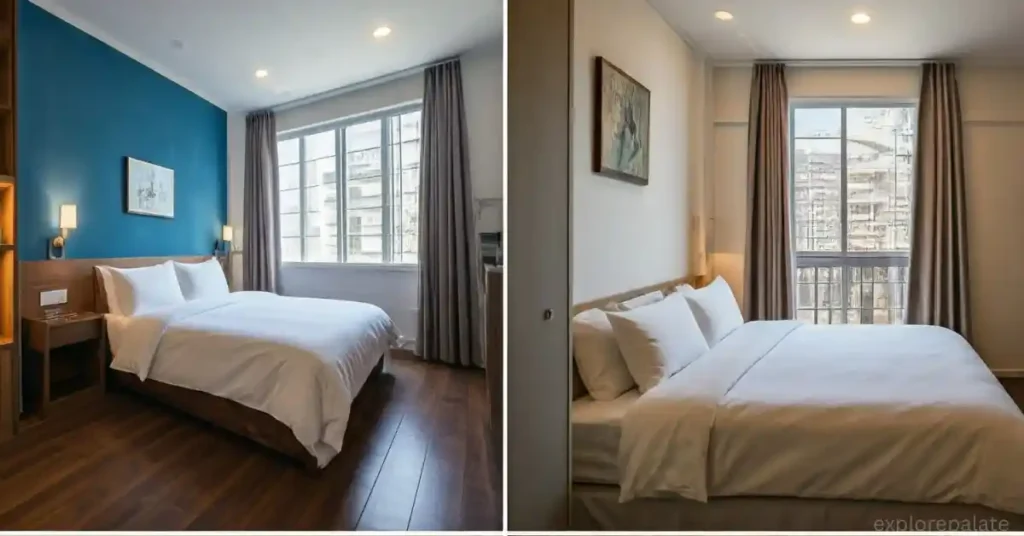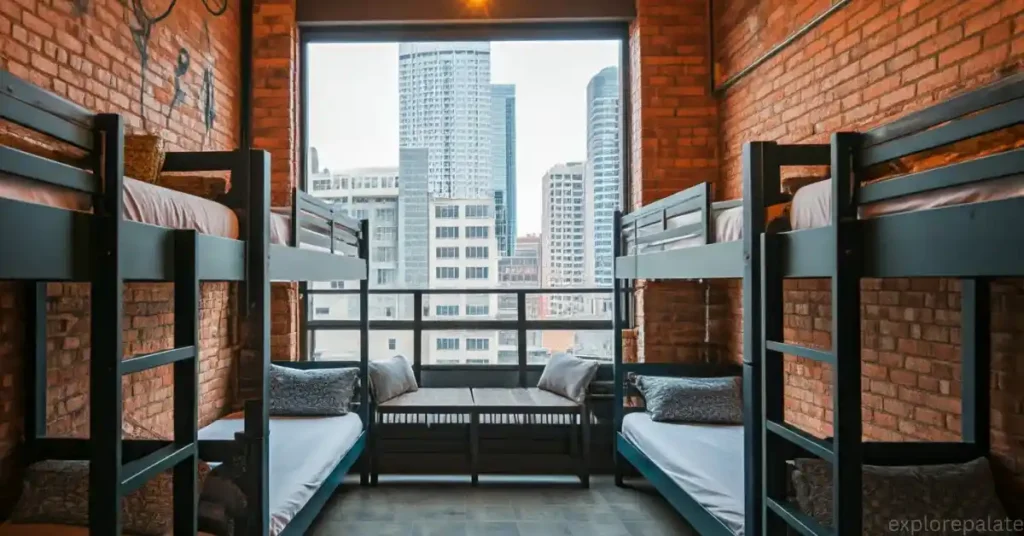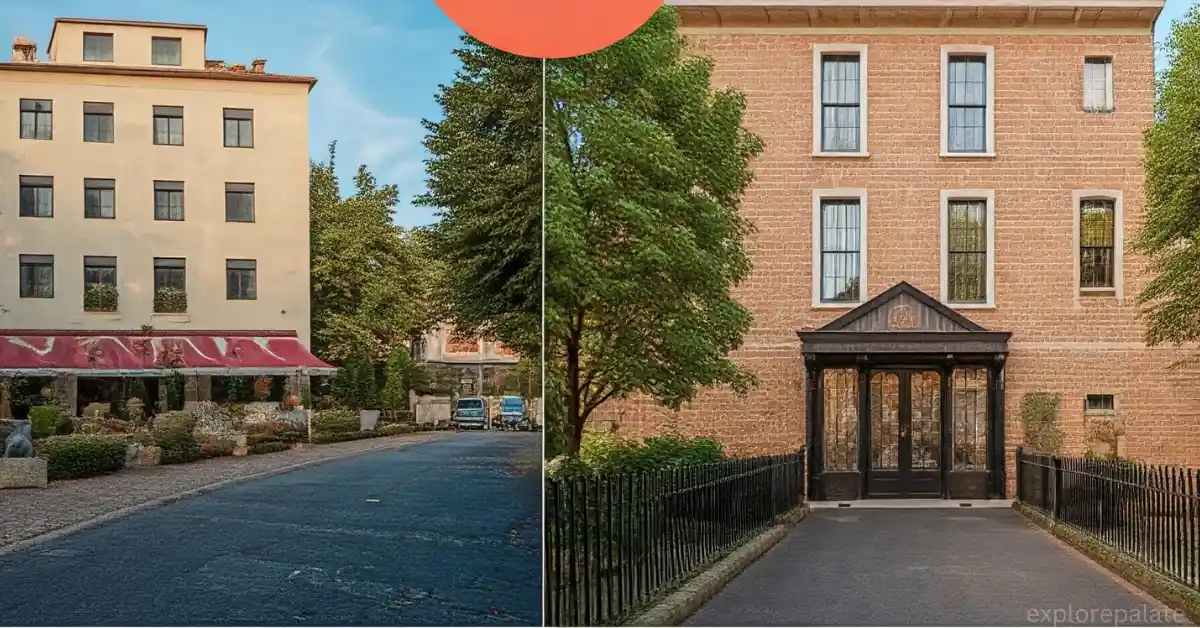When exploring accommodation options, the comparison between hotels, hostels, and Airbnb reveals significant insights. Hotels generally offer a more luxurious experience with private rooms and a range of amenities, making them ideal for professionals and families. In contrast, hostels provide an affordable alternative for like-minded travelers, often featuring bunk beds and shared spaces, fostering social interactions among guests, including kids and grown men or women seeking budget-friendly options.

Airbnbs operates within the sharing economy, allowing individuals to rent everything from entire homes to airbeds, offering unique local experiences. While hoteliers in the hotel industry focus on providing standardized services, Airbnb hosts offer varied accommodations, sometimes resulting in differences in cleanliness and comfort.
The evolution of these accommodation types also invites discussions on regulations and their impacts on traditional hotel and hostel models, highlighting the need for future-ready solutions in the ever-evolving travel landscape.
What is a hostel?

Hostels are a concept in the traveling world that caters primarily to a younger audience, especially backpackers looking for lower-priced accommodations while exploring places like Europe. Typically featuring large dorm rooms with bunk beds and shared bathroom facilities, hostels provide an opportunity for cultural interchanges and shared experiences among travelers.
Many hostels offer a communal kitchen and a shared lounge area, allowing guests to prepare meals and socialize, which enhances the working atmosphere of the hostel. While privacy may be limited compared to private accommodations, the allure of meeting like-minded individuals and the chance to spend less make hostels an attractive option for those on a shoestring budget.
Overall, hostels are a practical choice for travelers who prioritize shared experiences over privacy, making them an essential part of the accommodations landscape.
How do hostels work?

Hostels offer a basic yet affordable alternative to hotels, providing essential services and amenities for budget-conscious travelers. To stay in a hostel, guests typically book a bed in a dormitory or a private room at prices that are significantly lower than hotels.
Many hostels encourage guests to pay extra for additional services, such as sheets or breakfast, which helps enhance their experience. It’s advisable to book ahead of time, especially during peak travel seasons, to secure a spot. Guests can either book directly through the hostel’s website or utilize various popular booking sites and OTAs for convenience.
This structure not only makes it easier to find a place to stay but also supports the sharing economy by distributing travelers across various accommodations, allowing for interaction among like-minded individuals and fostering a communal atmosphere. With the rise of innovative hostels, travelers can expect more than just a place to sleep; they can also enjoy unique experiences that reflect local culture.
Eating and Drinking

When considering accommodation options like hotels, hostels, and Airbnb while traveling, the type of food-related experiences can vary greatly. Hotels often include dining options that significantly impact overall costs, while hostels and Airbnb may require more planning for meals, potentially leading to lower expenses. Ultimately, the choice may hinge on your preferences for drinks and food, making it a significant factor in your travel decisions.
- Hostels
When it comes to choosing a place to stay, hostels offer a unique experience that caters to budget-friendly travelers. These accommodations often feature communal areas and shared kitchens, allowing guests to cook their meals. This can be a great option for those looking to save on food expenses while traveling. Preparing your own food can substantially cut down on the costs associated with dining out, which can vary widely depending on your destination. Many hostels even provide complimentary breakfast, making it easier to start your day without breaking the bank.
For those who prefer a social atmosphere and the chance to meet fellow travelers, the communal setting of hostels enhances the experience while reducing overall travel expenses. In my travels, I’ve found that the ability to share meals and experiences with others in a relaxed environment truly enriches the journey.
- Hotels
When considering hotels, travelers often encounter a range of options tailored to various budgets, from budget hotels to luxury hotels. The experience at these establishments typically includes dining facilities that may offer room service and a complimentary breakfast, helping to offset overall food costs.
For those seeking a home-like feel, self-catering rooms with a kitchenette provide flexibility, allowing guests to prepare their meals. While mid-range hotels might balance comfort with affordability, high-end choices can be quite pricey but often justify their room rates with premium services and amenities. In contrast, hostels and Airbnb offer a more communal or local experience, attracting those who may rely on shared facilities or unique accommodations, but they generally lack the extensive services found in traditional hotels. I’ve found that while hotels provide a sense of security and convenience, the vibrant atmosphere of hostels and the charm of Airbnb can create memorable travel experiences that hotels sometimes miss.
- Airbnb
When considering Airbnb as an accommodation option, travelers often appreciate the flexibility it offers compared to traditional hotels or hostels. Many Airbnbs provide full kitchens and the opportunity to rent an entire apartment or home, which can greatly enhance the travel experience, especially for those looking to save on food costs during longer stays.
Access to local grocery stores and markets allows guests to shop for groceries and cook their meals, resulting in significant savings. Unlike hotels, which may lack a kitchen and often require guests to rely on dining out or takeout, an Airbnb setup can offer a more local neighborhood feel, letting guests immerse themselves in the community.
However, some may find shared rooms in certain listings less desirable, especially if they prefer privacy, but these can still present relatively low costs for those on a budget. Overall, choosing an Airbnb can provide a unique way to travel, combining the comforts of home with the adventure of exploring a new area.
Hostels: the Marriage of Airbnb and Hotels?

When you look at hostels today, they combine the social atmosphere of Airbnb with the structure of hotels, offering travelers a unique experience. They differ from traditional accommodations in their focus on community living, making them better suited for those looking to work and socialize on the go.
Now, many hostels provide the same amenities as hotels, so the idea of staying in one feels much more appealing. If you’re wondering how to decide, take a moment to consider your travel needs; hostels might be your next favorite choice!
- Flexibility and availability
When considering Airbnb, hostels, and hotels, backpackers often seek a more flexible option, like a hostel, where they can easily find a spot for last-minute stays or even change routes without needing to book in advance. While hotels typically require confirmed reservations, Airbnb hosts may offer immediate availability or have more lenient cancellation policies, although they may also include non-refundable rates.
- The traveler’s experience
In the future of travel, hotels, hostels, and Airbnbs compete fiercely to provide a personal touch; local guides now reimagine how we experience off-the-beaten-track destinations by connecting like-minded travelers with fellow guests. The desire for unique experiences means they must stay up-to-date and offer one-of-a-kind options, ensuring guests know where to go and what to do while watching out for the best local spots to truly bump into the culture.
- The future of hospitality
In an evolving landscape where technology plays a crucial role, the future of hospitality is becoming increasingly about flexible options that meet the diverse habits and schedules of travelers. As budget-conscious individuals seek unique experiences, Airbnbs and micro-hoteliers offer local charm through distributed addresses like apartments and shared dorms that challenge traditional hotel brands.
This sharing economy is pushing hoteliers to adapt and innovate, creating an ecosystem where cooperation with local landlords is essential for compliance with local regulations. As travel habits shift, brands like Mews are leveraging Property Management Systems to streamline management and enhance the customer experience, making them more reliable and relevant.
As we navigate this new wave of technology in the industry, the competition will focus on brand-building and providing diverse products tailored to individual needs, ultimately transforming the way we perceive accommodation.
- Adapting to the market
In today’s evolving travel landscape, leading lights in the hostel industry, such as Wombats, Clink, and Generator, are redefining what it means to stay in a hostel, often blurring the lines with hotels and Airbnbs. These brands have adapted to today’s travelers, focusing on creating a well-designed space that includes comfy beds and private rooms, making it ideal for professional travelers seeking both comfort and reliability.
Additionally, regional brands like Soul Kitchen in St Petersburg and Mosaic House in Prague prioritize a great location with social spaces where guests can meet fellow travelers, fostering a vibrant community. This diverse offering of amenities, coupled with professional housekeeping and clean facilities, transforms the sellable space into an inviting environment that is both unbound and connected to its immediate geography.
Ultimately, the hostel experience is being reimagined, allowing hoteliers to offer more than just a bed; they provide a dynamic and engaging atmosphere that appeals to a wide range of guests.
Conclusion
When comparing hotels, hostels, and Airbnb, the distinction among these accommodation types is evident in their offerings and experiences. Hotels typically provide luxurious amenities, ideal for families and professionals, while hostels attract budget-conscious travelers with communal living, encouraging social interaction and shared experiences. In contrast, Airbnb offers unique local accommodations, ranging from private homes to shared spaces, catering to a diverse array of preferences.
Each option presents its advantages; hotels focus on service and reliability, hostels promote camaraderie, and Airbnb provides flexibility and local flavor. Ultimately, the choice among these accommodations hinges on personal preferences, budget constraints, and the desired travel experience, highlighting the dynamic landscape of the hospitality industry.
FAQs
Are Airbnb or hostels cheaper?
For solitary voyagers, hostels usually prove more economical than Airbnbs. Yet dormitories hardly replace the tranquility of one’s quarters.
How do hostels compare to hotels?
While hostels and hotels offer lodging, myriad differences distinguish their qualities. Gregarious travelers flock to sociable hostels with dormitories that foster fellowship through shared living quarters, finding new acquaintances readily. Alternatively, hotels prioritize solitary seclusion within private rooms, exchanging interaction for independent accommodation and calm. Despite hotels’ appeal to solitude seekers, hostels cultivate communities through communal living that some find enhances trips through new connections.
What separates an Airbnb from a hotel?
Airbnbs usually offer lower nightly rates but quality, seclusion, and amenities can fluctuate wildly. Hotels charge more yet aim for a uniform experience.
How do hostels compare to Airbnb rentals?
Hostels provide the most economical option, especially dormitory rooms. Private quarters in hostels often undercut Airbnb in cost only slightly. Whatever your dates or place, assessing each accommodation’s particular prices proves wise.

